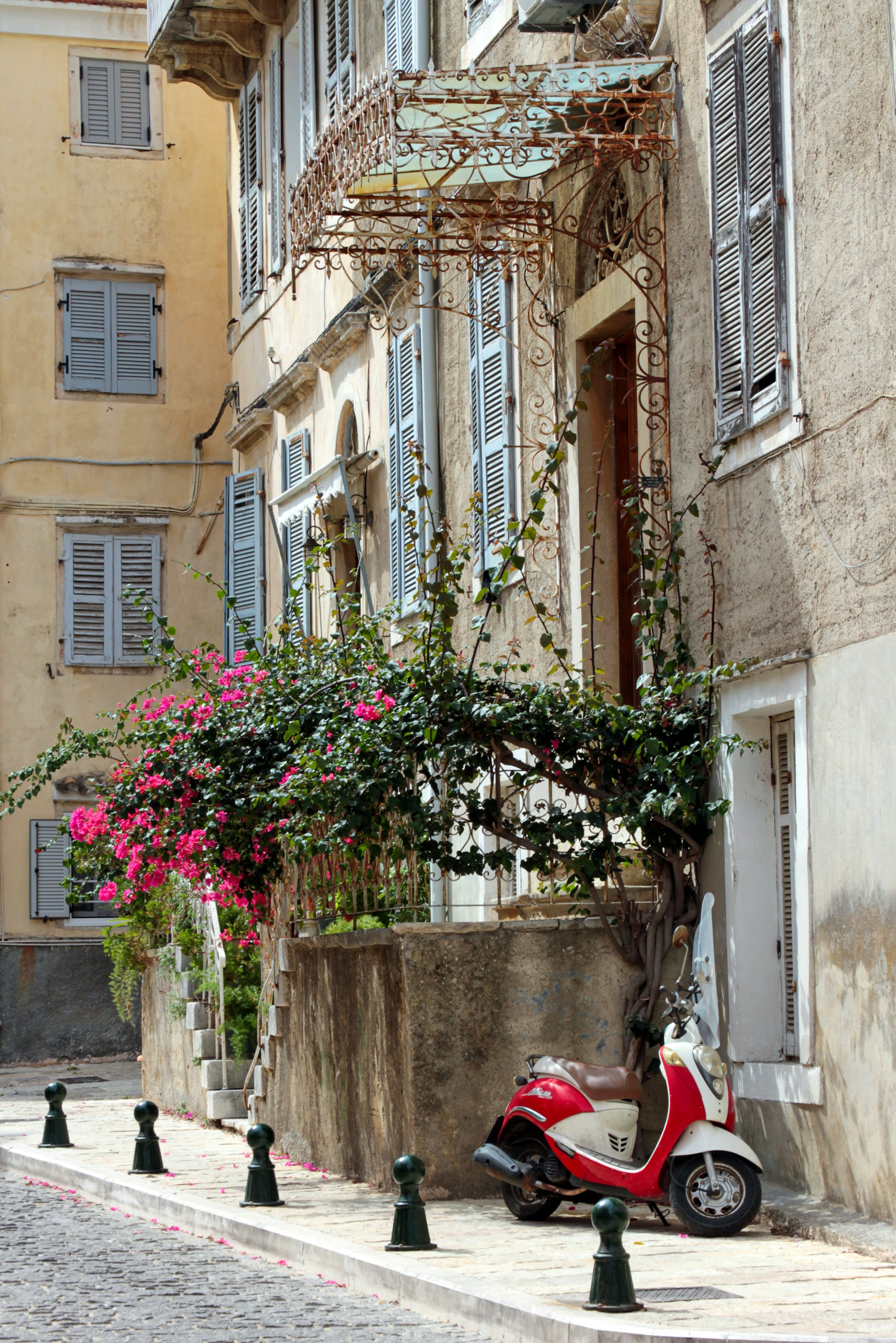Corfu Travel Guide: History, Customs, Festivals & Traditions

History of Corfu
Corfu, known as Kerkyra in Greek, is a gem in the Ionian Sea with a rich historical tapestry that weaves through centuries of conquests, battles, and cultural exchanges. The island's strategic location made it a coveted possession for many empires and civilizations.
The earliest recorded inhabitants were the Phaeacians, whom Homer described in his legendary works. Corfu's history saw its integration into the Roman Empire in 229 BC and later into the Byzantine Empire. The island's distinct architectural and cultural character emerged due to successive occupations by the Venetians, French, and British, each leaving an indelible mark. This confluence of cultures over the centuries has manifested in Corfu's unique charm.
Customs & Traditions
Corfu is a land brimming with traditions and customs that reflect its storied past. Here are some quintessential customs:
- Filoxenia: Hospitality in Corfu is legendary. Locals go out of their way to welcome strangers, echoing Homeric traditions of treating guests with utmost respect and generosity.
- Litanies and Processions: Deeply religious, Corfiots honor patron saints with solemn litanies and vibrant processions. Saint Spyridon, the island’s patron saint, is revered with four major processions annually.
- Olive Harvesting: The cultivation of olives is a time-honored tradition. Families come together during the harvest season, making the entire process a communal affair.
Festivals in Corfu
Corfu's calendar is peppered with lively festivals celebrating religious, cultural, and historical events. Here are some of the most notable festivals:
- Carnival: Marking the pre-Lenten festivities, Corfu's Carnival features jubilant parades, masquerades, and revelries reminiscent of Venetian traditions due to the island's historical ties with Venice.
- Easter: Celebrated with unparalleled fervor, Easter in Corfu is distinguished by the “Pot Throwing” custom on Holy Saturday morning where locals throw large clay pots from their balconies to welcome spring and the resurrection of Christ.
- Sardine Festival: Held in August, this delightful event is dedicated to the sardine, with local fishermen offering complimentary sardine dishes grilled to perfection, celebrating the island’s nautical heritage.
- Saint Spyridon Feast Days: The feast days of Saint Spyridon, Corfu's patron saint, are marked on December 12th, August 11th, Palm Sunday, and the first Sunday in November with grand processions carrying his relics through the town's streets.
Mythology of Corfu
Mythology is woven into the very fabric of Corfu. According to legend, the island was named after the nymph Korkyra, who was abducted by Poseidon, the god of the sea, and brought to the island.
Moreover, Corfu is associated with several episodes in Homer's epic poems. The island of the Phaeacians, featured in the "Odyssey," is believed to be Corfu, where Odysseus was shipwrecked and offered hospitality before his return to Ithaca.
Cuisine and Local Delicacies
Corfiot cuisine is a delightful symphony of flavors, merging Greek culinary traditions with influences from Venetian, French, and British rule. Some must-try dishes include:
- Pastitsada: A hearty dish with pasta and veal or chicken cooked in a rich tomato and spice sauce.
- Sofrito: A flavorful meal of thinly sliced veal cooked in a white wine and garlic sauce, often complemented by mashed potatoes or rice.
- Kumquat: Corfu is famous for the cultivation of this citrus fruit, and its byproducts like kumquat liqueur and sweets are a delight for visitors.
- Bourdetto: A spicy fish stew made with scorpion fish, tomatoes, and hot red pepper, reflecting the island’s maritime traditions.
Visiting Corfu
Exploring Corfu offers an unparalleled experience due to its panoramic landscapes, ancient monuments, and undeniable charm. Key attractions include:
- Corfu Old Town: A UNESCO World Heritage site, the old town’s labyrinthine alleyways, vibrant squares, and historic buildings offer a glimpse into the island’s Venetian past.
- Achilleion Palace: Built by Empress Elisabeth of Austria, this impressive palace stands as a testament to Corfu's elegance and majestic views.
- Mon Repos: A neoclassical villa that now serves as a museum, located within a lush park, and offering a peaceful retreat.
- Paleokastritsa: Renowned for its breathtaking beaches, crystal-clear waters, and the historic monastery of Theotokos.
Whether you are drawn to Corfu by its history, traditions, or natural beauty, this extraordinary island promises a memorable journey through time, culture, and epicurean delights.
